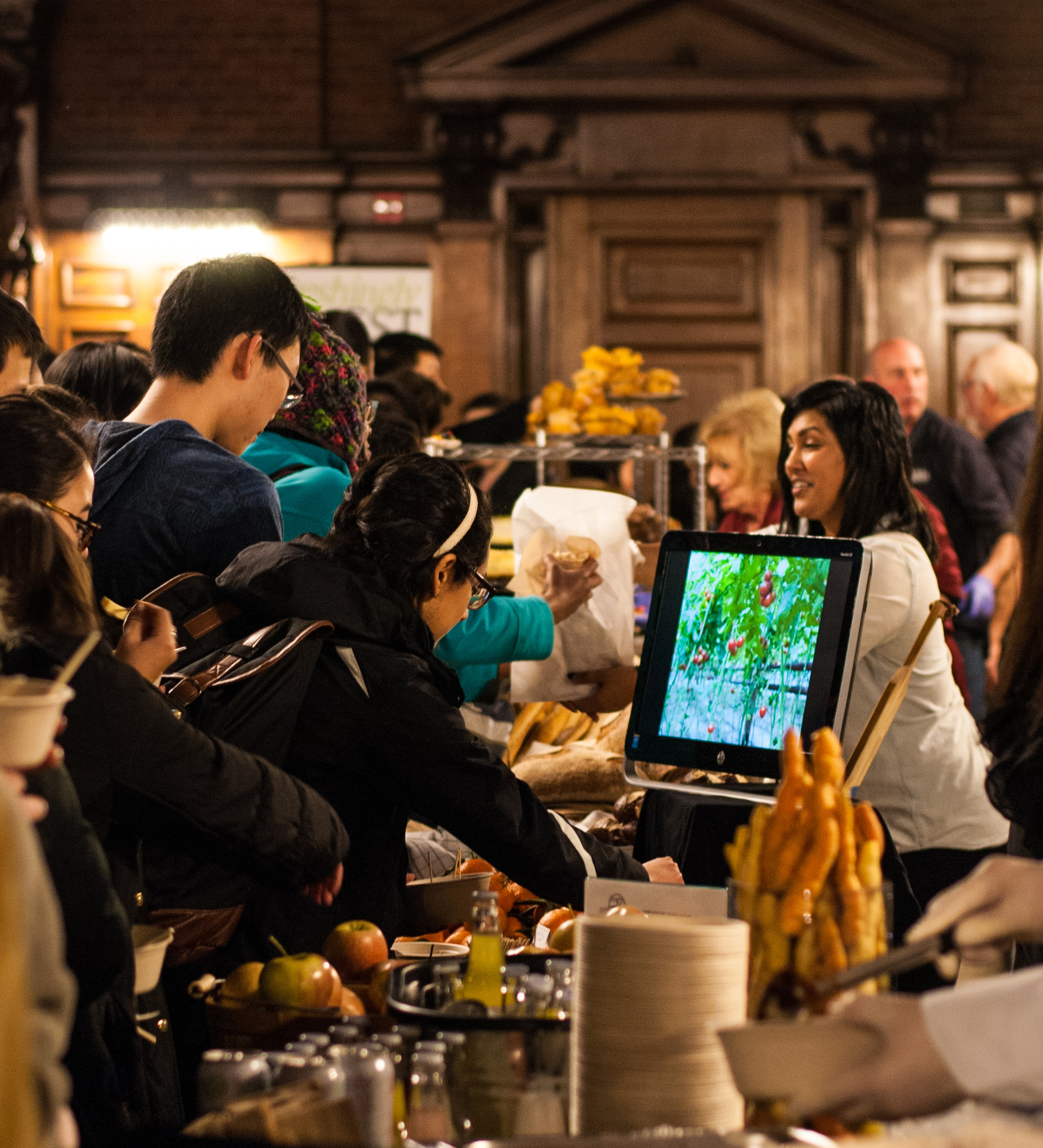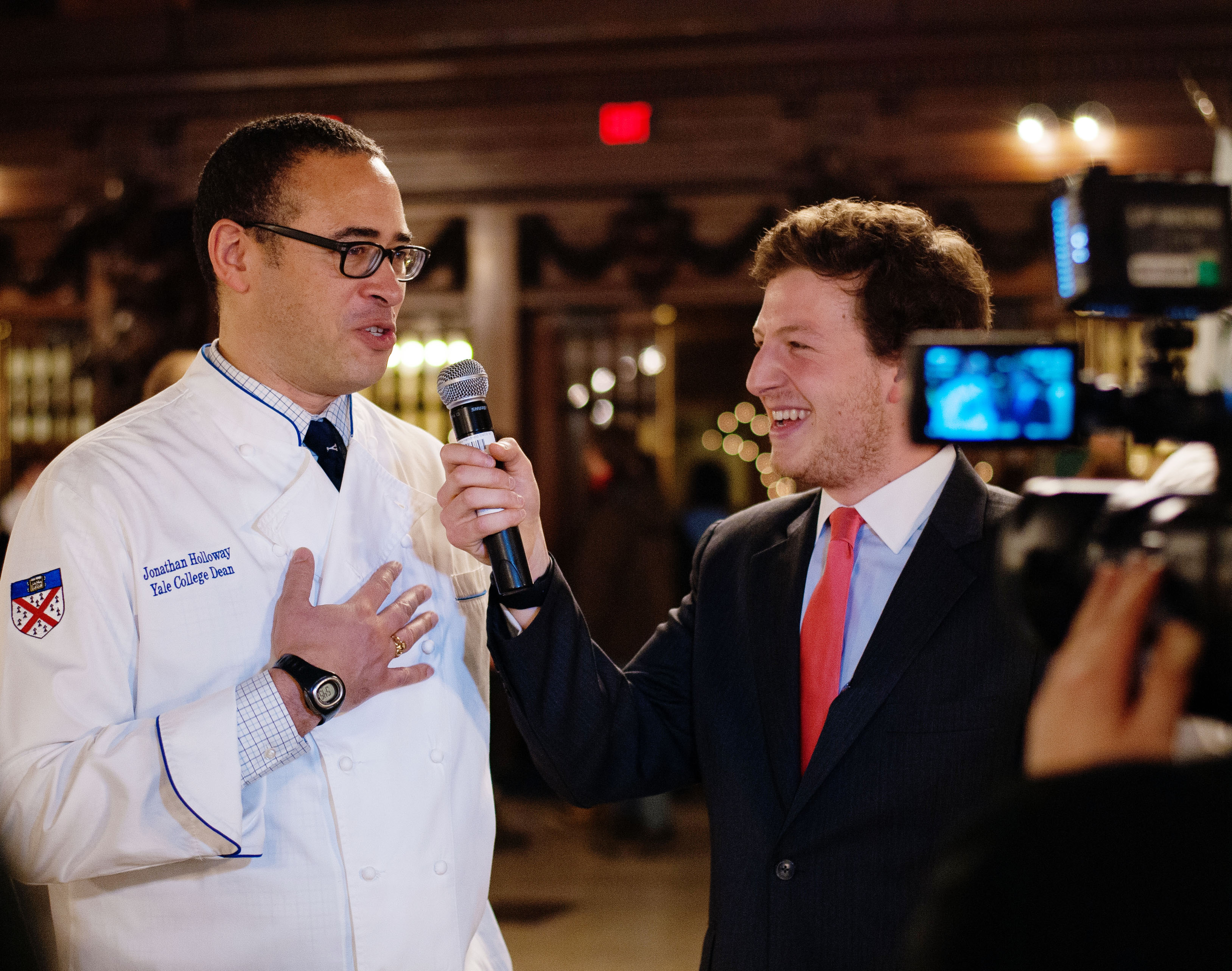
Nearly 900 students packed into Commons Dining Hall Tuesday night for the eighth edition of Yale Dining’s Final Cut competition, an extravagant affair that required nearly two full days of setup.
The festivities featured a MasterChef-style cooking competition between 12 teams, each representing a residential college and consisting of two or three student chefs, as well as an assortment of samples from over 20 of Yale Dining’s vendors. Each team was allotted 65 minutes to prepare and plate six portions of a meal including a vegan appetizer and a chicken-based entrée. Teams then submitted their finished products to the panel of six tasting judges, which included celebrities of the culinary world like restauranteur Danny Meyer and Ming Tsai, a chef, author and television host and producer. Other judges included University President Peter Salovey and Yale College Dean Jonathan Holloway. The judges, who all donned chef’s attire for the occasion, ultimately deemed the Morse team’s five-spice chicken and ginger arepa the best.
“I was very, very impressed,” said Meyer, the CEO of Union Square Hospitality Group, which owns a host of businesses, including Shake Shack. “There are a handful of dishes I would have been very pleased to come to a restaurant to eat.”
Morse’s triumph unseated Silliman College, the defending champion and victor in three of the past five years. Timothy Dwight and Saybrook Colleges took second and third place, respectively. The winning team was awarded $1,000, the runner-up $500 and the third-place team $250.
The competition used a two-part scoring system. During the cooking process, floor judges assessed teams’ organization, sanitation, efficiency of ingredient use, technique and craftsmanship. After teams finished preparing their dishes, the tasting judges evaluated the plates in three categories: creativity and originality; presentation and portion size; and taste and texture. Despite the multipart scoring system, the judges stressed the importance of executing the most basic aspects of a dish.
“I always say, ‘Keep it simple, stupid,’” said Tsai. “Just make sure the chicken is perfect.”

In addition to the main event, audience members from the different colleges competed for a spirit award given to the college demonstrating the most enthusiastic and consistent support for their team. Trumbull took first prize, Morse second and Silliman third.
At tables located around the periphery of the dining hall, Yale Dining’s suppliers served samples of their food — ranging from chicken samosas to Australian lamb meatballs to éclairs — to audience members. Final Cut offers vendors a chance to make their brand visible to students, according to Thomas McQuillan, a business analyst for Baldor Specialty Foods, one of the vendors.
“We’re here to showcase our product,” McQuillan said. “But we’re also here to showcase our sustainability efforts.”
For Yale Dining, too, the event has a purpose beyond pure entertainment, said Rafi Taherian, executive director of Yale Dining and one of the competition’s tasting judges. Final Cut provides an opportunity for students to engage in food-focused dialogue and for Yale Dining to both receive resources from vendors and showcase itself at the national level by attracting icons of the food industry, he said.
The 12 student teams had to share just seven ovens.
Correction, Feb. 25: A previous version of this article incorrectly stated that the winning Morse team cooked five-spice chicken with crispy rice. In fact, the team cooked five-spice chicken with a ginger arepa.







